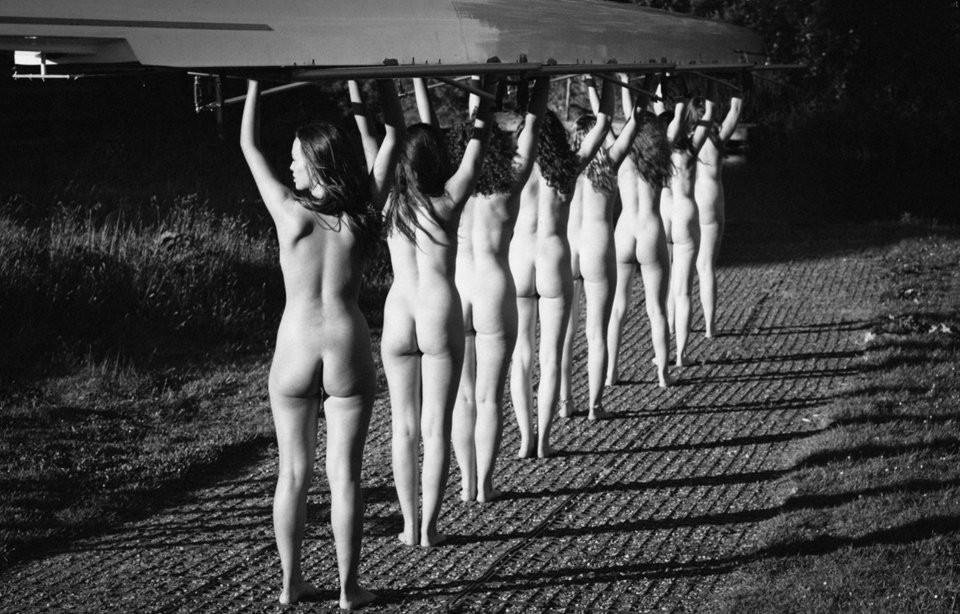POWER, FREEDOM, AND OBEDIENCE – Utopia and Reality in the Jules Verne’s Novel Twenty Thousands Leagues under the Seas.
DANIEL H. VALSECCHI
Introduction:
The aim of this article is to analyse this novel (1869)1 as a literary expression of a utopian project. In the year 1866, the frigate Abraham Lincoln navigates in order to find a monster, which terrorized sailors, travellers and it’s damaged a very large number of ships. Pierre Aronnax, the famous...

…
ichthyology, he is a researcher in the Museum of Natural History, the Canadian Ned Land, the king of the harpooners, drop to the ocean. Conseil, his loyal servant, jump to the sea. The alleged monster it’s – as mater of fact – it’s a submarine, propelled by electricity. They are rescued and at the same time become prisoners. In the deck of the Nautilus – the mysterious captain Nemo2 . 1. Mobilis in Mobili – a vehicular utopia3
The heroes’ situation in this novel: they are lost, they jumped to the water – as a passage between a symbolic death and a new birth. Aronnax and Conseil are naked. With a fast cut with the knife, Aronnax chopped the Conseil’s dress. Without dresses – the identity weak itself. Moreover, the action has place in the night. ‘It has a negative valour. It is in relation with the chaos, shaking, a lack of purity, fury, noise, implying blindness which reinforce the abandon and hopelessness feels4. This is the Mare Tenebrarum. In the moment when they are captured by the Nautilus’ crew, the night and the blackness reach the zenith. They are enclosed in a small cabin. Isolation is total. The isomorphism in the mother’ womb. [The Nautilus is a nuclear submarine. It’s in the Matrix].
B.KOMAR: I am a latrine����
1 Vingt mille lieus sous les meres, Paris 1880. In the successive 20.000.
2 Nemo means «nobody»
3 The expression «vehicular utopia» was coined by A.B. Evans. The Vehicular Utopias of Jules Verne –Transformation of Utopia: Changing Views of the Perfect Society www.math.technion.ac.il
4G. Durand, Les structures anthropologiques de l‘imaginaire. Introduction a l’archetypologie générale, Paris 1960. p. 89-91.
ESTERKA: All quite in the Wawel. My fresh whores are running around me naked.
B.KOMAR: I love this. Nature and perversion.
This is precisely, the moment of the passage from the external world towards a close space. The Nautilus does not exist. It’s a result of Verne’ creativity. It is possible to distinguish between two utopians. A utopia stricto sensu – that is to say, the Nautilus as an artificial space. On the other hand, a zone which is avoid of a concrete existence.

It must to be said, that the ocean’s depth it’s a utopian space owing to the following cause: in the XIX age there are not an adequate technology to search the sea’s profoundness, the abyss’ caves, etc. From the etymological point of view, the word utopia (oύτóπoς without place). Taking into account the Venn’s diagram which is composed by closed spaces and by it lines that superposes themselves. Nautilus navigates in a peculiar space that sometimes changes it semantic meaning into an unknown space.
From the moment of being prisoners, the heroes of this novel, which belong to a certain utopian project. We stand in front of an artificial space, a theoretical construction – previously established. A project of an ideal society where everything is rigorously planned according the rules of an imaginary world5. This place is characterized by symmetry, regularity (according to a rule), enmity against the nature, a new language, a control of the individual, a withdrawal from the world through the compartment. The utopian community fights against everything which is outside. In these space there are not conflicts. As as well as neither mistakes.
5 R. Ruyer, L’utopie et les utopies, Paris 1950, pages. 40-54. L. Boia, Pour un histoire de l’imaginaire, Paris 1998, page 144 and following. L. Heller y M. Niqueux, Historie de l’utopie en Russie, Paris 1995, pages. 7-8.
2.Nautron respok lorni vir – an artificial language for an artificial world
Every fact, which I aforementioned depicted, include different forms of utopias. What happens in the Nautilus? The submarine is an artificial space. It needs an artificial language only known by captain Nemo and his crew6. The Nautilus is a living machine. It’s propel itself. Mobilis in mobili The result of the Nemo’s creativity. He loves it as if it were his son (lover-cock). This love approach itself to the Hegel’s conception of work. The creator recognizes himself as a result of his praxis. The Nautilus is the captain’s Nemo is the prolongation of his own body. Between the submarine and Nemo it’s a hypostatic union. Nautilus are Nemo are one.
3.Everywhere Electricity – in front of a technical world
It is sufficient to read these chapters «everywhere electricity» and «some numbers» to realize that we are in front of a technic universe. This one is self-sufficient. From the crew and the passengers only obedience. Captain Nemo is the lord of his ship. He performs the power. And of all are subordinates. In other words, the Nautilus is a small floating community.
4. I am a the same time engineer, constructor and captain – a portrait of a utopian hero. ��x8 =��It is clear the fact. The isolation. During a conversation between Aronnax and captain Nemo, the subject was the following: the [106-293. Ruyer]of artistic and literary collection. The earth for me has die. The submarine is a closed space. Nemo has contact with it only when he attacked and wrecked ships. Money for revolutionary actions. The Nautilus is a refuge, a material barrier. And at the same time – a way to scape from the world for him and another people.
5.I love the sea! – the faith of the waters’ Lord.
Captain Nemo, using words which pertain his credo sui generis, affirmed. He loves the sea. Firstly, as a big desert, ‘the man he is not alone. Around him, a life beating and living infinite [83]. This is the ecological side of such a love. A man has the obligation to respect the fauna’s ocean. For instance, Nemo called Land as a barbarian. The illimitable hunt of purples. Secondly, the ideological and political side.

EVERY ASS IS A WEAPON ����
6Professor Aronnax after listening many times Nautron respok lorni vir, deduced: in the horizon it is impossible to see something...cfr. 20.000 page 145.
Captain Nemo escapes from the humanity and he finds a refuge in the sea. In the sea there are not despotic people. Only in the depth of the sea is freedom. At the same time, occupies the South Pole. A spaces in a long time ago inaccessible. He referred to it as a New Kingdom.

In the depth of the sea, from the perspective of structural archetypes of the golden age7 that is to say, a space which is in the past, the golden age is the Kingdom of the savage nature and the paradise myth’s fountain.
In the depth of the ocean, depicted in the novel, it is a particular version of the structural archetype? The answer is affirmative. Verne does not save details to depict the Crespo’s islands. The landscape is bucolic because in that place the silence domain. Under several meters of the ocean.
In another scene, Aronnax and Nemo walk through the Atlantis – the lost land. About of this subject the ancient authors wrote a lot of books. In certain sense, the Atlantis is the lost paradise. It is also a utopia. As a matter of fact, was a city whose existence never was demonstrated. Who knows if in a certain day this submerged ruins – owing to a volcano phenomenon – this ruins will return to the surface’s world? In other words, the Atlantis as a place to make reality the golden age’s myth. The Nautilus it’s a designed space. The depth is a natural space. In both cases – the reject of the world. The Verne’s readers must wait to 1875 – to know who was Nemo. The Prince of Dakar. His wife and his sons were murdered by the Englishmen during the Sepoys revolution.
6.Socialization
Conseil is phlegmatic and obedient. A servant. He addressed in the third person to his Lord. In France means an absolute servitude. For instance, owing to the crash the frigate, in the moment when the Nautilus has not oxygen, the servant attempted to calm him with this words: if I could not able to breath, more oxygen for you.
Verne presents these situations in a ridiculous way. As a matter of fact, minimizes the social differences through a total submission as something absolutely normal. Conseil is a loyal servant but at the same time, he has his own scale of values, but according to him a shell has more valour than an indigenous life. In a fragment of the novel, Conseil attempted to shot an indigenous because he destroyed a shell. He was is stop by Aronnax. And a reprimand: a sea shell has not the value of a human being.
7The archetype structure is a human quality to think, to act, to dream in a determined way. It’s an organised schema, a matrix, which never change, despite the modifications in it contained. L. Boia, Pour une histoire de l’imaginaire, page.. 17.

FOUR AMAZONS����
What kind of socialization?
On the one hand, a servant who belong to the most low social step with disdain treats the indigenous. He called him as a monkey. On the other hand, the indigenous situation does not change. Captain Nemo addressed to them with this words: Poor Papua! I don’t want that one life was lost during my settlement in Gueborar.
As a matter of fact, the first project – one Polish nobleman will be Nemo into action in the November uprising (1863 – Grottger POLONIA). Hetzel, the editor was frighten. The Russian reaction might be understand this action as a provocation
It’s must to be said that the Polish nobleman exerts the power in a cruel way. The peasantry was treated as cows.

The youth who reads the Verne’s works, attends the school for the high class. The examples of domination which appears in the novels, the absolute submission of the low classes and the indigenous as a normal form to perform the power. This statement is throw fort on the sphere of the sexual life. It’s perceptible the secondary place of the women and Verne reinforced the disdain in the XIX century. Verne was a misogynous. All the society, was the adversary of them. The dominant class conserves his power by the cut, to pressure the women in relation with the men. To search a scapegoat, the dowry, the arranged matrimony. Verne glorifies the machines which replace the women. To say in the XXI century weak sex is a foolishness. A machine cannot replace a human being. When I was in Buenos Aires, I watched a movie. Owing to a virus – women are extinguished. They will be replace by Cyborgs. The protagonist has one. The Cyborgs had a limit. The battery is out. They are carried out to a deposit in a desert. The protagonist wants has «his» own Cyborg and a beautiful real woman (she saved herself from the extermination by chance). She helped him. In a plane go to desert. The deposit suddenly explodes. The woman said him: go to the plane… I will be here. In the air he saw her eyes. Her glance said everything. He
returned. Screw me!

I am not fine – misogyny Verne Style. In my shell a virile member of a real men…
Returning to the XIX century, and his famous «health» literature. A lack of women «purify» the texts. The women tendency to the mortal sin. Verne, perhaps against of his will, take in account the despotic domain of his editor. It is necessary to understand his inner contradiction. He was an agent of socialization for the dominant class and justifies through the literary tools the lack of equality in the industrial world. Verne – using his literature attacks the colonialism, specially the British one. He, too, attacks the slave commerce in Africa equatorial. However, in the close space of the Nautilus, the obedience and the order are confirmed. Captain Nemo in an obsessive form disposes the fate of his crew and the «hostess» of the submarine. He is the first despot, the Lord of the waters.
Conclusion
All of my statements, critics, and my attempt to demolish some myths. For instance, the «health» literature for the youth does not undermine the values of the Verne’s work. Undoubtedly, 20.000 Leagues under the Seas is a masterpiece. Every work can be read in different forms. My statement are based in the utopia and its problematic. I must to put aside a very large number of problems. For instance, the relation between science and freedom. The psychological factors (Aronnax-Nemo). Ned Land as a «earth» element in the work and his role as a «outsider» which destroys the purity and the isolation.

From the anthropological point of view – I lived aside the fight against the turtles. Verne recovered an archetype which was used earlier by Victor Hugo. His fight against the fate (fatum) in the novel Les Travailleurs de la mer.
From the political point of view – I lived aside the problem of anarchism and its dialectic «destruction-renewal» which is present in the novel. Captain Nemo affirmed: the earth does not need new continents. He needs a new men. This phrase has anarchist in the sense of renewal – even violently of the old world. In the South Pole he deployed the black flag with the letter «Z» in the centre. The black colour is the colour of the anarchism. Nemo conquered an empty space. In the future – a new continent for the humanity without rights and a social order?
In this novel the problematic of the power is omnipresent. The novel is a thesis about the essence of the power. Reading the novel – many times we can find complicated relations among the protagonists, individual situations which easily can be extrapolate to the social scale. The Nautilus it’s a small society. The relation «face to face». This society is anonymous and impersonal. The utopia reveals the world flaws by the counter-world as a mirror which reflect the own flaws and the problem of this reality.
There are two utopias. The Nautilus and the depth of the ocean. Verne showed us the drama of the process of industrialization and it consequent. And at the same time the reinforcement of this systems. Undoubtedly this paradox is an enigma...
EVERYASS IS A WEAPON


